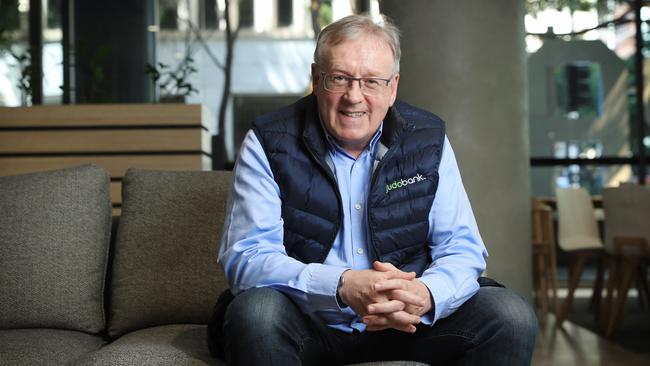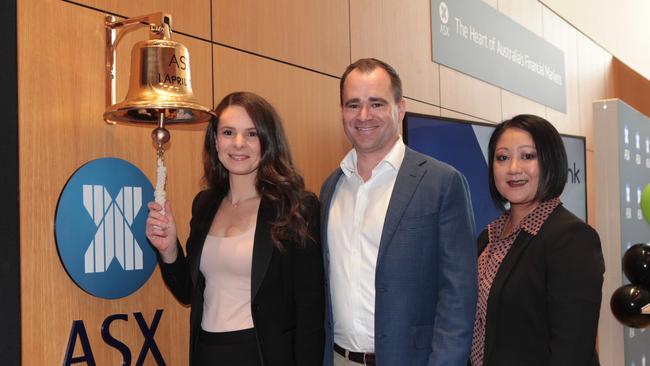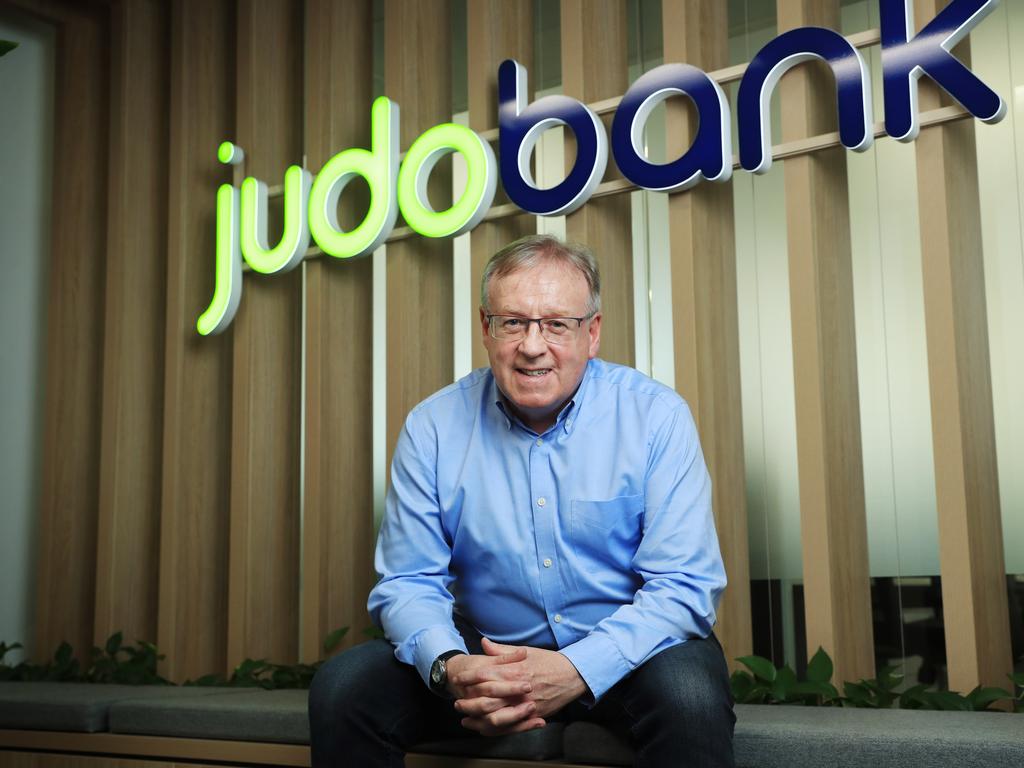Judo Bank rings in ASX listing with jump in share price
Australia’s newest listed bank has run in a rise in its share price after hitting the ASX boards on Monday.

With a glass of champagne, Judo Bank’s staff rung in the $2.3bn stock market debut of the small business lender.
Shares in Judo Bank closed up 6.6 per cent as investors scrambled for a slice of the first bank to list on the ASX in 25 years.
The offer price of $2.10 a share quickly closed at $2.26, with funds from the initial public offering raising $657m.
Judo Bank’s listing comes just six years after the seed of the business was planted in a power point presentation by a frustrated former big four bank executive.
Judo Bank chief executive and co-founder Joseph Healy said while it was good to enjoy the moment, it was back to work.
Mr Healy said it was important for the bank to list, as the funds would go towards further growth for the lender as well as opening its operations up to broader public scrutiny.
“Banks are quite capital intensive business, we have now raised $1.5bn over the last few years but there comes a point that as you grow and you need to go back to the capital market it’s a lot easier to do that in the public market,” he said.
Mr Healy, whose stake was worth $77m on paper, said the bank had been handed a “blue-chip” registry through the IPO, which had been almost three times oversubscribed on the institutional side.
Represented among investors were Cambooya, which acts as financial advisers to the Vincent Fairfax family, as well as the Myer family, and Bain Capital with 9.4 per cent of the business.
“It’s a to-die-for share register,” Mr Healy said.

The listing marks another milestone for Judo Bank, which gained its full banking licence from APRA in April 2019.
Mr Healy said he had thought Judo Bank would be best placed to list in 2023, but the strength of the growth in the business in the last year had brought forward the float.
A key feature in the strength of Judo Bank’s business in the last year has been lending supported by the Reserve Bank of Australia’s Term Funding Facility.
The company signalled the expiry of lending under the TFF in 2024 as a risk to the business, but Mr Healy said Judo Bank was already working to transition to new sources of funding.
“We’ll switch into the deposit market back into the wholesale debt market and use the TFF for a very short period of time,” he said.
Mr Healy was critical of the capital treatments of the smaller bank players, but said he hoped to take Judo to a similar approach in the next five years.
The big four banks are internally rated under the Basel II guidelines, allowing them to set their own estimated risk parameters.
“Our model assumes we will be using the same capital ratings we already have,” Mr Healy said.
“But over time we will be working to achieve the same treatments as the major banks.”
Mr Healy said he didn’t see Judo Bank’s future tied up with one of its bigger competitors.
“At a personal level the idea of being acquired by a big bank has never appealed to me,” he said.
But he noted if big banks were so inclined they could seek to buy up Judo Bank.
“The company is now in the public market and in theory anyone can buy stock in the company,” he said.
“The challenge my colleagues have is to run Judo really well and increase valuation so it becomes prohibitive for someone to buy us, that’s the only defence we have.”





To join the conversation, please log in. Don't have an account? Register
Join the conversation, you are commenting as Logout